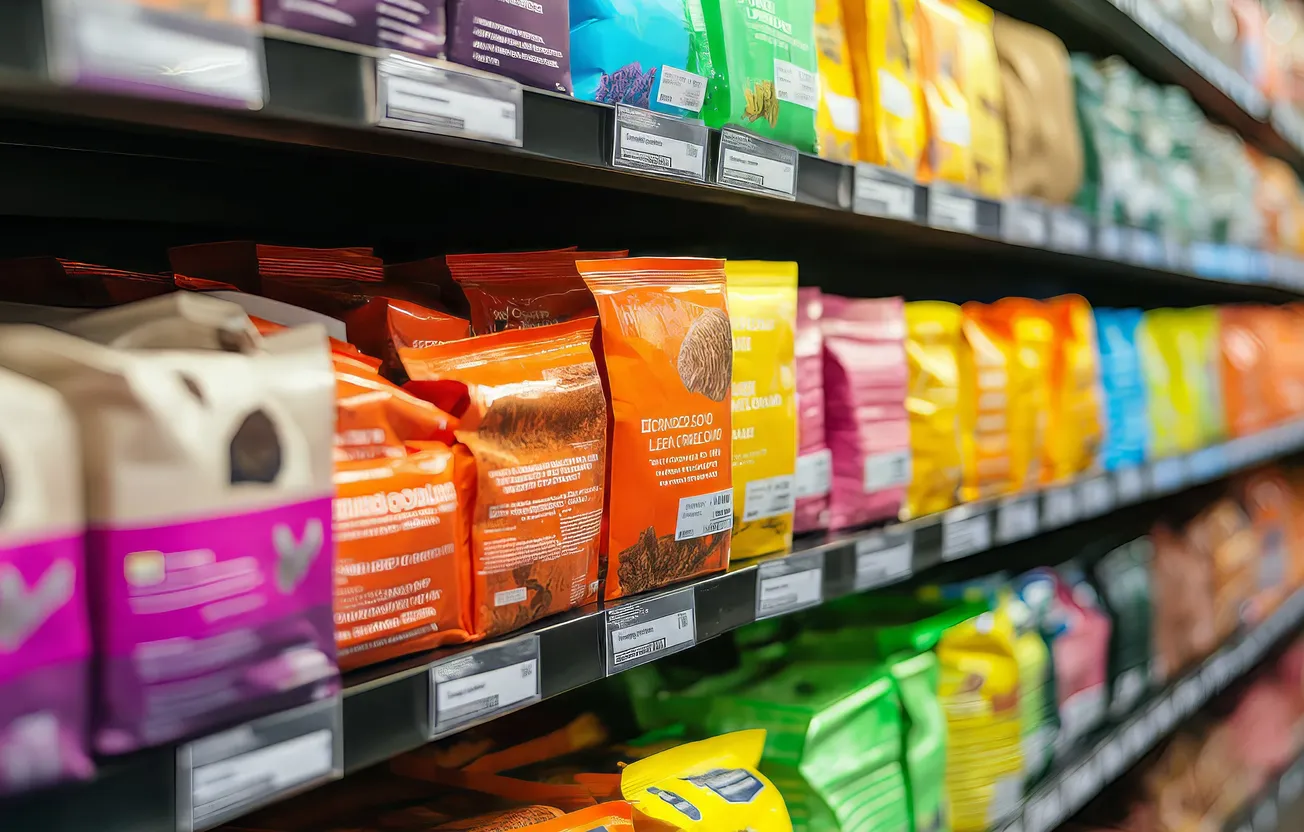The battle between private-label retailers and brand-name manufacturers is intensifying, and packaging is the new battleground.
As more retailers invest in developing their own lines of products to compete directly with national brands, accusations of design mimicry are surfacing with increasing frequency—often leading to courtroom clashes over intellectual property, trade dress, and consumer deception.
Mondelēz Takes on Aldi in Federal Court
In one of the latest examples, snack conglomerate Mondelēz International filed a federal lawsuit in May 2025 against German discount grocer Aldi.
The suit, filed in the Northern District of Illinois, alleges that several of Aldi’s Benton’s snack items bear packaging that is “confusingly similar” to Mondelēz staples like Oreo, Chips Ahoy!, Ritz, and Wheat Thins. The Benton’s products mimic key design elements including color palettes, typefaces, and photographic arrangements, according to the complaint.
The suit claims Aldi’s intent was to trade on the visual equity and consumer trust built by Mondelēz, thereby infringing on trade dress protections.
The legal filing includes side-by-side comparisons of the products in question. The packaging similarities are stark: Benton’s chocolate sandwich cookies feature a bright blue background, bold white font, and imagery nearly identical to Oreo’s classic look.
Similar allegations are made about Benton’s crackers, which allegedly imitate the golden hues and graphic layout of Wheat Thins and Ritz.
Mondelēz is seeking both monetary damages and a court injunction that would bar Aldi from continuing to sell the lookalike items.
Repeat Allegations for Aldi
This isn’t the first time Aldi has faced scrutiny over its packaging practices. In the United Kingdom in 2024, a judge ruled in favor of Thatchers Cider in a suit against Aldi over its Taurus brand cider.
The court determined that Taurus’s label was intended to evoke the appearance of Thatchers Gold, a leading UK cider. The ruling stated that Aldi aimed to associate its product with Thatchers’ reputation in order to bolster its own sales—a textbook example of trade dress infringement.
Trader Joe’s and Small Brand Accusations
Trader Joe’s has been accused by multiple small food companies of copying their packaging and products.
According to reporting by Business Insider, brands such as Brooklyn Delhi and Auria’s Malaysian Kitchen allege that Trader Joe’s approached them under the guise of forming partnerships, requested samples and proprietary information, and then released similar products under the Trader Joe’s private-label brand.
While these cases have not resulted in legal action, they have drawn criticism and highlighted the ethical gray zones in packaging strategy.
Walmart’s Packaging Disputes: Branding and Green Claims
Walmart, the largest retailer in the U.S., has also dealt with packaging-related disputes.
In one high-profile case, the company was sued by Variety Stores, Inc. over its use of the “Backyard Grill” brand. Variety Stores alleged that Walmart’s branding infringed upon its own “The Backyard” trademark.
Although the products themselves differed, the names and associated packaging were similar enough to prompt a protracted legal dispute, showcasing how branding and packaging overlap in legally complex ways.
Packaging controversies have not been limited to appearance alone. Walmart was the subject of another legal battle in 2020 when Greenpeace filed a suit over alleged false recyclability claims.
The environmental group accused Walmart of labeling certain plastic packaging materials—specifically Nos. 3–7 and shrink sleeves—as recyclable, even though such materials are rarely accepted in municipal recycling programs.
While the case was eventually dismissed due to lack of standing, it shed light on broader issues around environmental marketing and packaging transparency.
Costco Cases: Misleading Claims and Undisclosed Risks
Costco, too, has faced packaging-related litigation, though focused more on content and disclosure.
The wholesaler was involved in a class-action lawsuit over its Kirkland Signature flushable wipes, which plaintiffs claimed caused plumbing damage. Costco ultimately settled the case for $2 million.
In another case, the company was sued over its Kirkland Signature organic seaweed snacks, which were alleged to contain undisclosed levels of cadmium, a toxic heavy metal. The lawsuit contended that the packaging failed to inform consumers of potential health risks, raising questions about product labeling and consumer safety.
Retailers Under Pressure to Redraw the Line
These legal challenges underscore the increasing complexity of packaging as a commercial and legal issue.
On one hand, private-label brands aim to offer competitive alternatives to national labels. On the other, established companies are pushing back hard when they believe packaging has crossed the line into mimicry or misrepresentation.
As private-label sales continue to rise—particularly in the current inflationary climate—the visual language of packaging is becoming as valuable as the products it contains.
The results of current litigation, including the Mondelēz-Aldi case, are likely to shape future industry practices. For retailers, the pressure is on to develop packaging that is distinctive yet competitive. For brand owners, vigilance over trade dress and packaging claims will remain a critical part of protecting market share.
As the legal landscape evolves, packaging will no longer be treated as a mere marketing tool but as a pivotal component of brand identity and legal strategy.








